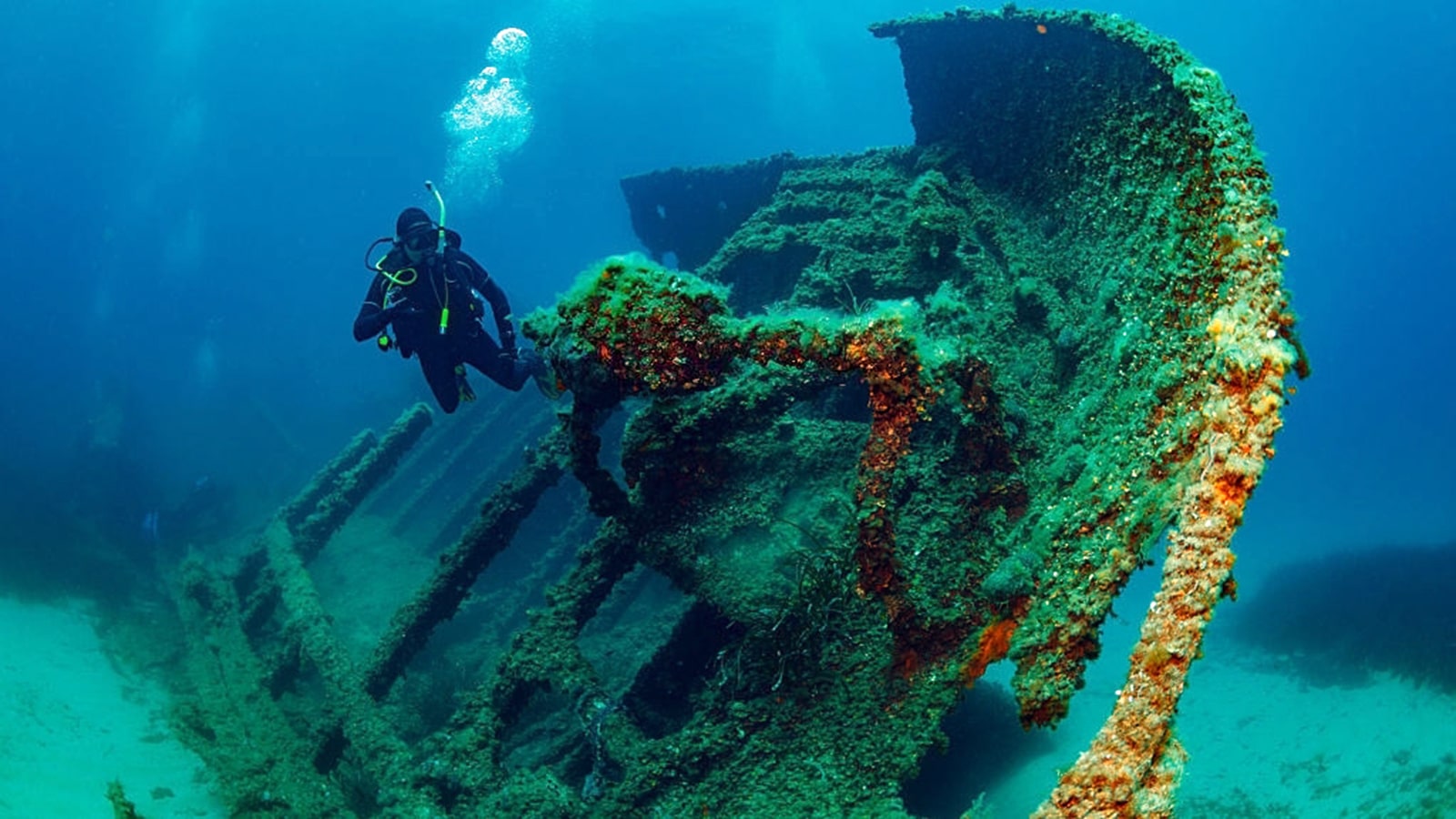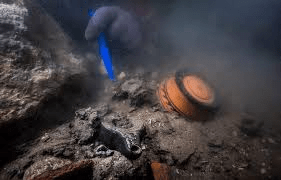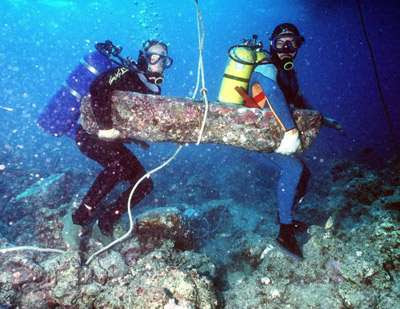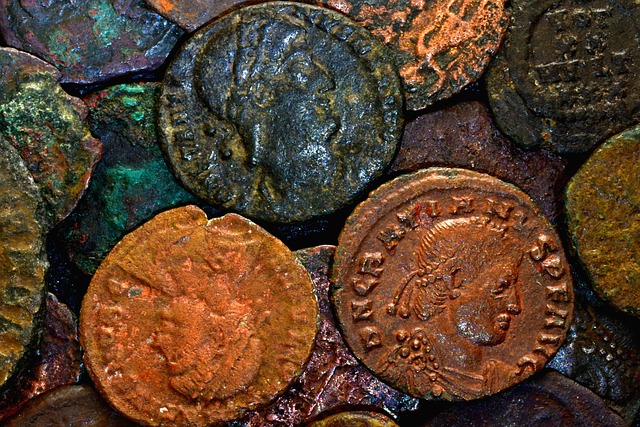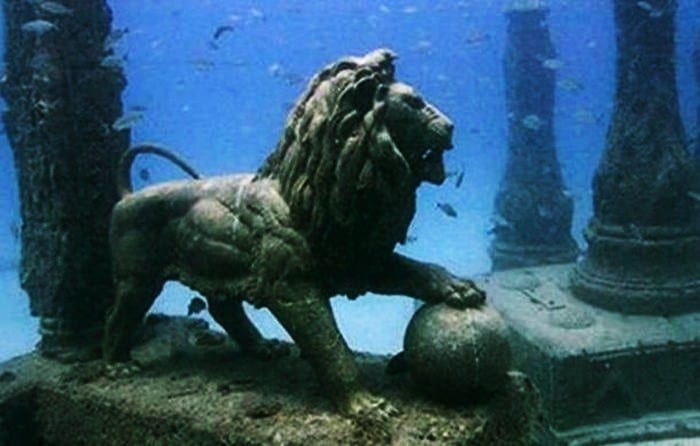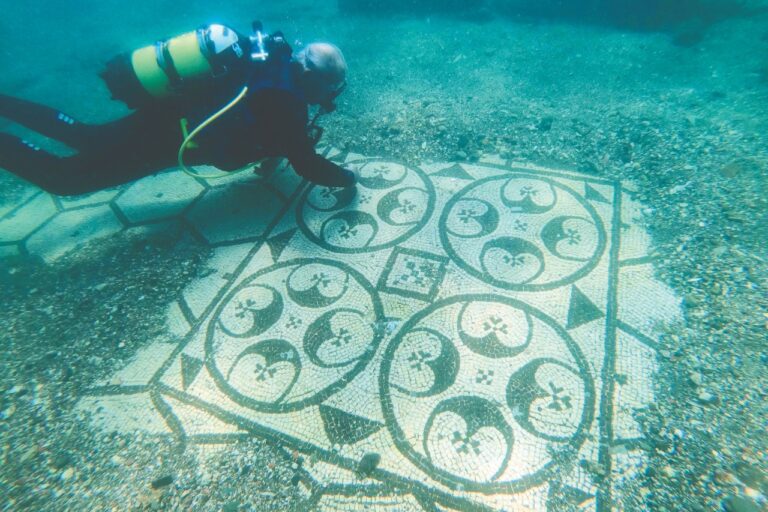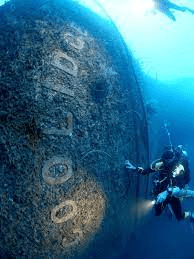Incredible Underwater Discoveries that Changed History
Underwater discoveries have played a significant role in shaping our understanding of history. These incredible findings have unearthed centuries-old mysteries, shed light on lost civilizations, and transformed our knowledge of ancient technology and trade routes. The exploration of underwater sites not only provides us with invaluable historical information but also allows us to preserve and study our underwater heritage. In this blog post, we will delve into some of the most astonishing underwater discoveries that have changed history.
Table of Contents
Ancient Shipwrecks:
- The Antikythera Shipwreck
The Antikythera Shipwreck, dating back to the 1st-century BC, is an incredibly important underwater discovery. Discovered off the coast of the Greek island of Antikythera in 1900, this shipwreck has provided us with valuable insights into ancient technology.
The most significant finding from this shipwreck was the discovery of the Antikythera mechanism, a complex mechanical device believed to be an ancient analog computer. This remarkable artifact changed our understanding of ancient technology and the capabilities of civilizations from that time period.
- The Uluburun Shipwreck
Another noteworthy underwater discovery is the Uluburun Shipwreck, which dates back to the Late Bronze Age. Excavated off the coast of Turkey in the 1980s, this shipwreck revealed a treasure trove of valuable artifacts.
The importance of the Uluburun Shipwreck lies in the insights it has provided into ancient trade routes, ancient civilizations, and seafaring capabilities. The artifacts discovered in this shipwreck showcased a wide range of trade goods, including precious metals, ivory, ceramics, and more. This discovery has greatly enhanced our knowledge of ancient civilizations and their connections through maritime trade.
These ancient shipwrecks continue to amaze and reveal hidden secrets about our history. The Antikythera Shipwreck revolutionized our understanding of ancient technology, while the Uluburun Shipwreck shed light on ancient trade routes and seafaring capabilities. These incredible underwater discoveries highlight the importance of preserving and studying our underwater heritage for the sake of future generations. The exploration of the depths continues to yield fascinating discoveries that have the power to change our perception of history.
Lost Cities and Civilizations:
The City of Alexandria, Egypt
The submerged ruins of the famous ancient city of Alexandria in Egypt hold a remarkable story that has captured the imagination of historians and archaeologists alike. This majestic city, founded by Alexander the Great in 331 BC, was once a thriving center of intellectual and cultural advancement. Over the centuries, due to natural disasters and human intervention, much of Alexandria was lost beneath the waters of the Mediterranean Sea.
Explorations of the sunken remains have unearthed a wealth of findings that provide invaluable insights into ancient Egyptian culture. Among the discoveries are statues, pottery, jewelry, and even fragments of the famous Great Library of Alexandria, which was renowned for housing an extensive collection of scrolls and manuscripts. These findings have broadened our understanding of ancient Egyptian society, its artistry, and its intellectual pursuits. They have offered a vivid glimpse into the lives of those who resided in the city centuries ago, shedding light on their customs, beliefs, and achievements.
The decline of Alexandria itself marked a turning point in history. As the city’s prominence waned, so did its influence on trade, politics, and intellectual discourse. It witnessed the rise and fall of civilizations, the shifting tides of power, and the impact of external forces on the region. Therefore, studying the submerged ruins of Alexandria not only connects us to a vibrant past but also helps us comprehend the dynamic nature of historical events and the interplay between civilizations.
The Lost City of Dwarka, India
Another captivating underwater discovery is the legendary city of Dwarka in India. According to Hindu mythology, Dwarka was the capital of Lord Krishna’s kingdom and is described in ancient texts such as the Mahabharata and the Puranas. The tales depict Dwarka as a flourishing city, rich with opulent palaces, grand temples, and bustling markets. However, for centuries, its existence remained a matter of speculation and debate among scholars.
Archaeological excavations in the coastal regions of Gujarat, India, have revealed compelling evidence of a submerged city that aligns with the descriptions of Dwarka in Hindu mythology. These findings include ancient artifacts, structural remains, and submerged structures that suggest an advanced urban settlement. While the connection between these discoveries and the legendary Dwarka is still a subject of exploration and research, the unearthing of this submerged city has sparked intriguing discussions about the historical truths behind the tales and the possibility of lost civilizations.
The lost cities and civilizations that lie beneath the world’s waters continue to captivate our curiosity and push the boundaries of our understanding. Each discovery unraveled by archaeologists opens a new chapter in the annals of history, revealing the complexities of ancient societies and the legacies they left behind. By exploring these submerged realms, we not only preserve and study our underwater heritage but also gain profound insights into the cultural, technological, and socio-political developments that shaped our world today. The pursuit of uncovering these lost cities and civilizations remains an ongoing endeavor, reminding us of the importance of underwater exploration and the endless potential for incredible discoveries that can reshape our understanding of the past.
Mysteries and Artifacts:
- The Underwater Bimini Road
The Underwater Bimini Road is a fascinating structure that has sparked much debate and speculation regarding its formation and origin. Located just off the coast of Bimini in the Bahamas, this underwater feature consists of a series of naturally occurring limestone blocks arranged in a linear formation. Some argue that this formation is simply a product of natural erosion and the effects of tides, while others believe it to be evidence of advanced ancient civilizations.
One intriguing theory suggests a possible connection between the Bimini Road and the lost city of Atlantis, the mythical civilization described by the ancient Greek philosopher Plato. This theory posits that the underwater structure could be remnants of an Atlantean road or even part of a larger complex that once stood above water. While this theory remains speculative, the possibility of a connection to Atlantis continues to capture the imagination of researchers and enthusiasts alike.
The discovery of the Bimini Road has had a significant impact on the study of ancient mysteries. It serves as a reminder that there are still many unanswered questions about our past and the civilizations that came before us. The ongoing investigation into the origin and purpose of this underwater formation highlights the importance of exploring and understanding the mysteries that lie beneath the waves.
- The Sunken Spanish Galleons
The waters of the Atlantic Ocean are known to hold numerous sunken Spanish galleons, each with a story to tell and treasures to discover. One such famous shipwreck is the Nuestra Señora de Atocha, which sank off the coast of Florida in 1622. Laden with gold, silver, and precious gems from the New World, this galleon’s discovery in the 1980s was a momentous event in the history of underwater archaeology.
The Nuestra Señora de Atocha and other sunken Spanish galleons provide a glimpse into the historical and cultural context of the time. These ships were an integral part of Spain’s colonial ambitions, transporting goods, wealth, and people between the Old World and the New World. The artifacts recovered from these shipwrecks offer valuable insights into the material culture of the era, shedding light on trade, navigation, and the social dynamics of the time.
The historical and cultural importance of these discovered artifacts cannot be understated. They provide tangible links to our past, allowing us to connect with the lives and experiences of those who came before us. Through the meticulous work of underwater archaeologists, these sunken treasures are being preserved and studied, enriching our understanding of history and the seafaring civilizations that once thrived.
In conclusion, the underwater mysteries and artifacts discussed in this section, including the enigmatic Bimini Road and the sunken Spanish galleons, underscore the enduring allure of the unknown and the wealth of knowledge that lies beneath the surface of our oceans. These discoveries remind us of the importance of exploring and preserving our underwater heritage, as they have the power to reshape our understanding of history and provide insights into ancient civilizations. As advancements in technology and exploration continue, there is no doubt that there are still countless incredible underwater discoveries awaiting us, waiting to change our understanding of the past.
Conclusion
Throughout history, there have been numerous incredible underwater discoveries that have had a profound impact on our understanding of the past. These expeditions and excavations have unveiled hidden treasures and invaluable artifacts that have changed the course of history.
In summary, the importance of underwater discoveries cannot be overstated. The Antikythera Shipwreck revealed the astounding Antikythera mechanism, a device that revolutionized our understanding of ancient technology. Similarly, the Uluburun Shipwreck shed light on ancient trade routes, civilizations, and seafaring capabilities of the Late Bronze Age.
Moving on to lost cities and civilizations, the submerged ruins of Alexandria, Egypt have provided tangible evidence of the city’s grandeur and contributed to our understanding of ancient Egyptian culture. Furthermore, the discovery of the Lost City of Dwarka, India has sparked discussions and speculation about the historical truths behind the myth, providing us with archaeologically significant evidence of the city’s existence.
In the realm of mysteries and artifacts, the Underwater Bimini Road has captivated researchers, leading to debates about its origins and possible connections with the mythical lost city of Atlantis. Lastly, the sunken Spanish galleons such as the Nuestra Señora de Atocha and the San Jose have provided us with valuable historical and cultural artifacts that offer a glimpse into the past.
In conclusion, these incredible underwater discoveries have greatly shaped our understanding of history. They demonstrate how essential it is to continue exploring the depths of our oceans and seas. The ongoing importance of underwater exploration cannot be understated, as future potential discoveries hold the power to challenge existing narratives and expand our knowledge even further. It is crucial that we recognize the significance of preserving and studying underwater heritage, ensuring that these valuable sites and artifacts are protected for generations to come.

